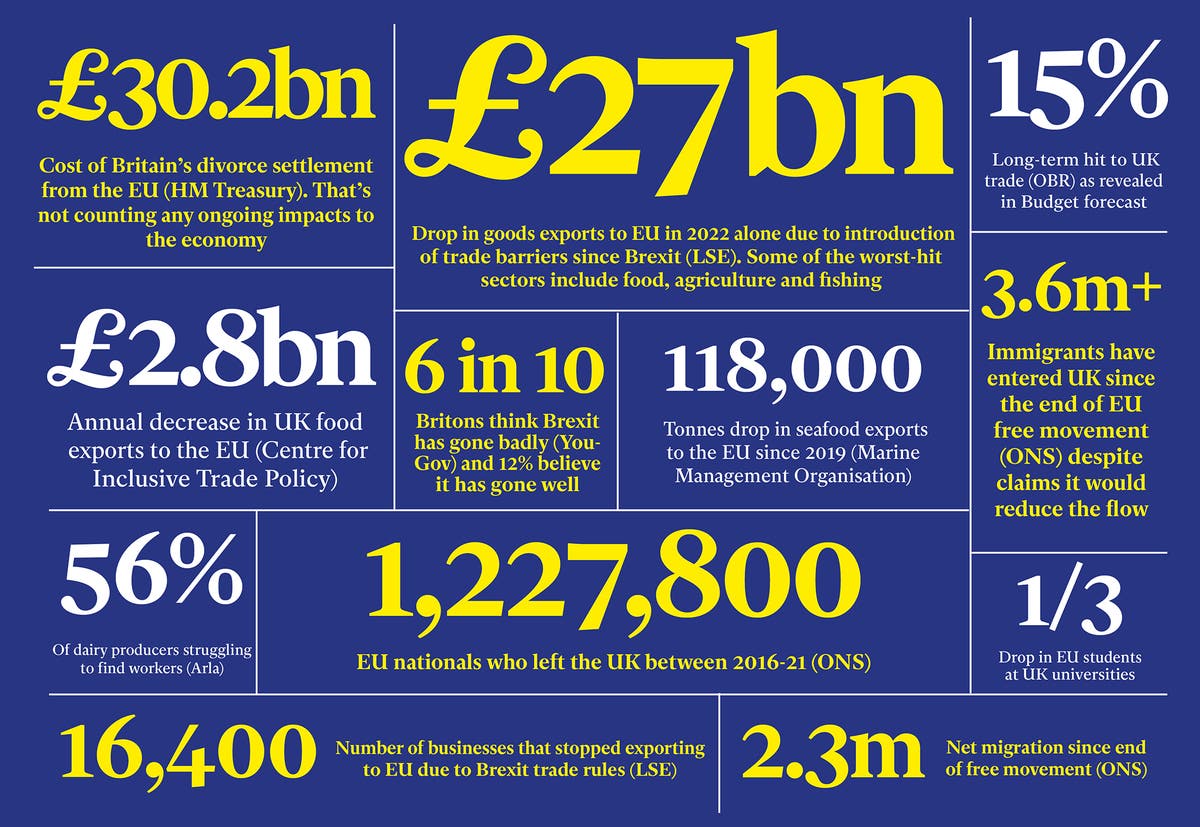Summary
Five years after Brexit, its promises of sovereignty, economic gains, and reduced migration remain unfulfilled. While Brexit offers regulatory flexibility, its overall impacts are largely negative.
The UK economy has suffered a £100bn annual output loss, with GDP 4% smaller than it would have been without Brexit.
Trade barriers have reduced exports, particularly to the EU, with small businesses and sectors like agriculture and fishing hit hardest.
Migration has surged to record levels, but net EU migration has turned negative.
Public dissatisfaction is high, with 59% believing Brexit has gone poorly.



The real price the UK will pay for Brexit should not be measured (and will probably not be remembered) in economic terms.
How would you measure it?
The loss of openness, the limiting of education and work opportunities, the rise of bad nationalism, the fracturing of European unity and community, the isolation of being stuck between the EU and the US, the inability to pop over to France for lunch or Germany for a football game, the loss of stature in an evolving world, the backwards steps to being more insular… I don’t know. All these things and more “may” come to pass.
I guess we’ll just have to wait and see.
All nationalism is bad nationalism because it necessitates a narrative of exceptionalism and lessers.
I’d suggest “good” nationalism is having a bit of pride and care for where you live, a knowledge of your history, feeling comfortable in your ethnicity (as opposed to race) and welcoming other folk with similar aspirations and trying to improve life for everyone in your area… but that’s just my opinion.